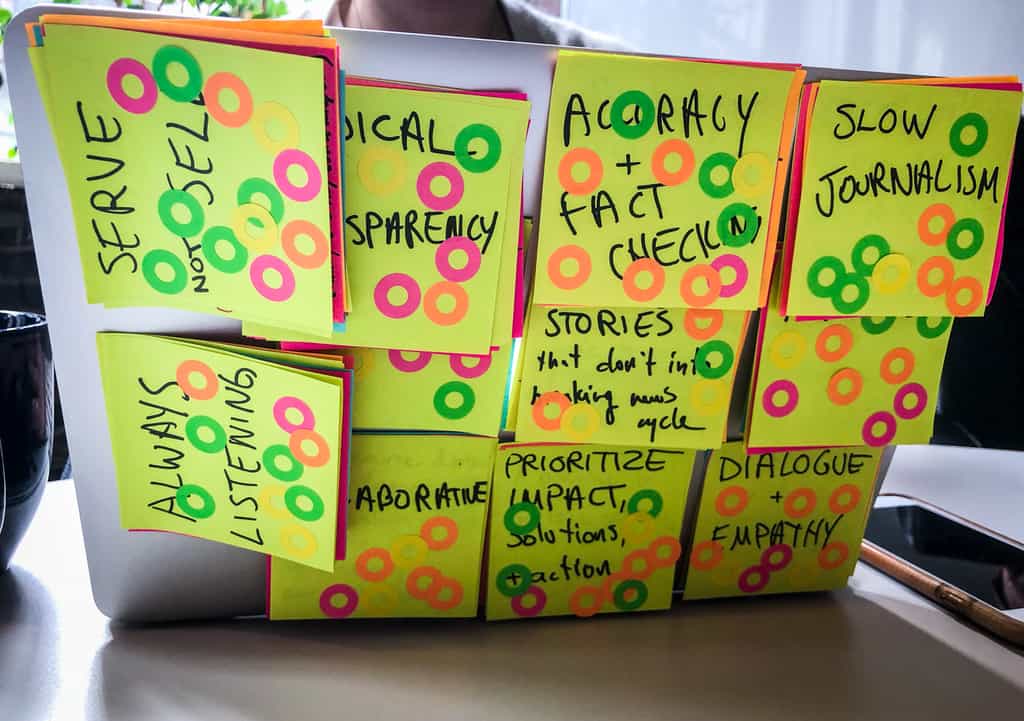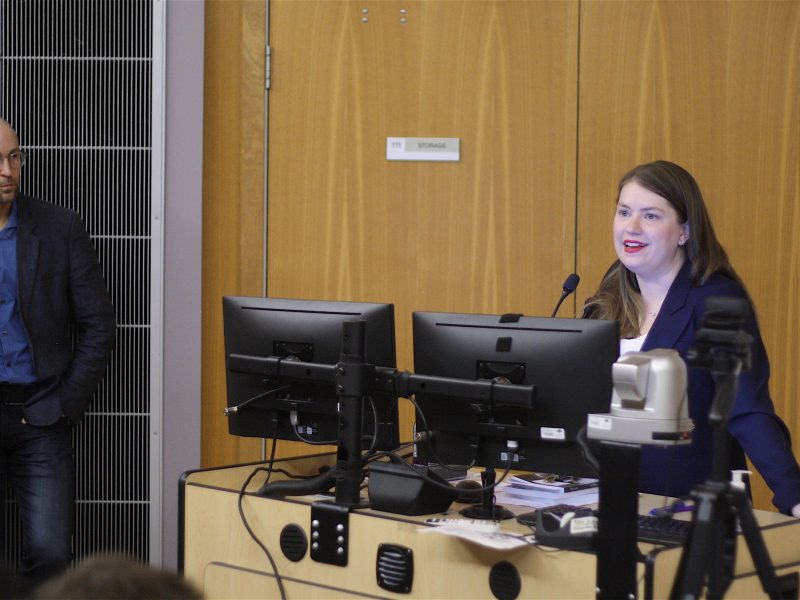
If you are struggling to hear the applause that greeted the federal government’s soupçon of support for Canadian journalism in last week’s federal budget — well, that’s what one hand clapping sounds like. No one is putting two hands together for what, so far at least, is a vague and, to many observers, somewhat paltry commitment to do something to arrest the precipitous decline in journalistic bandwidth in this country.
To recap, “the Government proposes to provide $50 million over five years, starting in 2018-19, to one or more independent non-governmental organizations that will support local journalism in underserved communities.” This for an industry that has lost more than 16,500 jobs in the past decade and has seen hundreds of newspapers, broadcasters and digital sites falter, merge or disappear altogether. These were founts of local journalism, often in underserved markets.
Consider that $10 million a year amounts to about 27 cents per capita per year — not even a tenth of a cent per day. The $50 million is less than the government plans to spend over five years ensuring Canadians “are well informed about cannabis.” By one estimate it could pay for 120 to 150 journalists, which even at the high end would be less than 1 per cent of the number of jobs gone. Five years in, once the money runs out, those new jobs would go too. A journalism student in Canada might well conclude that going into cannabis education is a better career move than planning to do local journalism in this country.
That said, there’s $50 million that wasn’t there before, which might be worth a lot more in practice than it looks like on paper if Ottawa is smart about how it deploys it.
Outside the Ottawa beltway, the concern is that the old interests that fumbled their way to near oblivion in recent years will somehow hook some of the money to prop up their dying operations. Paul Godfrey, CEO of Postmedia, scathingly dismissed the government’s move on CBC’s On the Money. “It will never succeed. …Local newspapers are failing everywhere. It’s better to give it to ones that are still surviving, rather than [give it] to start-ups because that’s not going to succeed. It’ll be wasted money.”
No, it would be an egregious waste of money to throw a lifeline to “surviving” newspapers that are of such irredeemably poor quality these days that it is no longer possible to equate their health with the presence or absence of good journalism in this country. It is also hard to square how giving money to the Canadian Press, a wire service owned by several large publishers including Torstar and the Globe and Mail, will revolutionize the provision of local journalism in places where its owners have never been, or from which they have withdrawn their services.
Ventures like The Tyee, DeSmog Canada, Press Progress, our own Discourse Media, National Observer, The Conversation Canada, Canadaland, the Global Reporting Centre, Hakai Magazine, iPolitics, Maisonneuve, The Sprawl, Ricochet, the West End Phoenix, Ryan McMahon’s Indian & Cowboy and so on are already far ahead of the digital “transition” that newspapers say they need federal money to make. The list goes on of innovative platforms in this country that do several things that should catch the government’s attention: publish journalism, provide jobs, serve underserved communities.
Do we do enough of it? No. Could we do a whole lot more? Without doubt. Can the government — with a down payment of $50 million and by loosening the rules to favour charitable contributions to public-interest journalism — help speed the plow? Absolutely.
The government should be engaged in a broad conversation with this country’s digital journalism innovators over how the $50 million could be best spent.
For example, why not support local news fellowships across the country, modelled on Discourse’s own modest effort to fund, train and publish new voices in places or about subjects that real journalism never reaches? We are doing that in three communities. Why not 300? What a perfect opportunity to partner with philanthropists — national foundations, but also provincial, regional and local foundations and civic-minded supporters concerned for the health of their community discourse — to find more resources for more voices, and to treat each death of an old model of delivering journalism not as a closing but as an opening to do something different.
The government could also direct some of the funds to helping journalism start-ups develop new business platforms. The goal should be to get regular people — consumers — to finance journalism. The Tyee, for example, gets a third of its revenue from its readers. Discourse Media is poised to launch a beta version of a new audience-supported platform that will allow us to employ dozens of journalists nationally. Core funding to assist us through the development phase would be a huge boost not just to us but to a shared end goal of developing viable business models for citizen-supported journalism all over the country.
We’ve previously proposed that the government explore a “citizen news voucher” that would permit all Canadian adults to direct $100 of their income taxes each year to support journalism content. (Our proposal is an adaptation of a concept championed by Robert McChesney of the University of Illinois.) Every Canadian adult would be entitled (but not obliged) to allocate their voucher to any eligible news outlet of their choice: print, broadcast or digital.
The government has shown little appetite for opening up the tax code to an innovation of this cost and scale, but there are many different possibilities for helping local journalism grow in Canada. Among them is the signal from government that it is contemplating relaxing Canadian Revenue Agency rules to enable “private giving and philanthropic support for trusted, professional, non-profit journalism and local news.”
While welcome and long overdue, will that necessarily trigger a gush of money?
Kevin McCort, president and CEO of the Vancouver Foundation — far and away the largest community foundation in the country — told us that the state of Canadian media “is not on people’s radar like, say, opioids or homelessness. On the hierarchy of social needs, it’s at or near the bottom.”
McCort said “there’s not a lot of money sitting on the sidelines,” waiting to rush in to fund public-interest journalism, but he sees an opportunity to triangulate the government’s budget contribution to journalism, foundations’ interest in systems change and communities’ interest in having good journalism happen.
If the government engages in a conversation with digital innovators, philanthropists and the communities that are suffering from an absence of good journalism, the government’s $50 million could turn into $150 million, or maybe a lot more than that. We don’t need any more reviews of what ails Canadian journalism. We need the collaboration of likely suspects who will treat $50 million as a lot of money and find ways to make it go a lot further.
A version of this article also appeared in Policy Options.
Discourse is one of SheEO’s Top 7 Ventures for 2017!
We’re thrilled to announce that Discourse has been selected as one of SheEO’s top seven Canadian ventures! SheEO is a network of 500 female entrepreneurs who support each other to grow their businesses. Along with the six other winners this year, we’ll split access to a $700,000 investment. To learn more, check out reporter Emma Jones’ Q&A with SheEO founder Vicki Saunders in our latest gender newsletter.
In other investment-related news, we’ve reopened our equity crowdfunding campaign as part of our push to raise $1 million to take Discourse national. More than 300 investors have stepped up so far, contributing a total of $600,000 through our FrontFundr campaign and other means. The campaign is now open until March 15, so you have one week left to #OwnTheDiscourse.
Get a sneak peek at Canada’s newest media outlet

Discourse will soon have a new look and feel! This month, we’re launching the beta version of our new website, and we want you to be among the first people to test it out.
Over the next little while, we’ll be publishing work on First Nations housing conditions, sexual violence on campus, the child welfare system and Canada’s commitments to the United Nations Sustainable Development Goals — you can be a big part of all these stories by giving us feedback. We need our community members to help us make our journalism product as good as possible.
If you want to be one of the first people to see Canada’s newest media outlet, sign up here. For six to eight weeks, we’d like you to explore the website, engage with the Discourse team and your fellow beta testers, and then provide your input. At the end, we’ll send out a survey with specific questions. [end]



